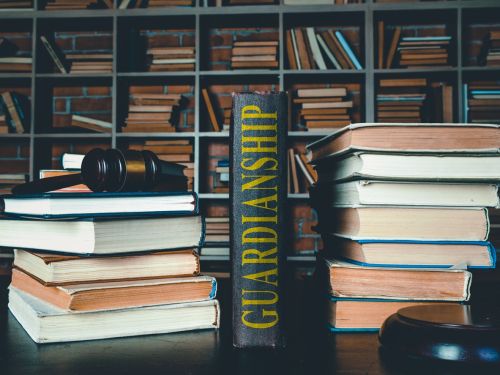Understanding the Guardianship Litigation Process

Guardianship matters are taken very seriously by courts in Minnesota. Since they significantly restrict the civil liberties of the person subject to the guardianship, any interested person can contest the need for the guardianship. In addition, family members may wish to dispute who is appointed as their loved one’s guardian or challenge how the guardian is handling their duties. Guardianship litigation is the court process that resolves any type of dispute that arises in connection with a guardianship.
What is a Guardianship?
A guardianship is a legal arrangement in which an individual is appointed by the court to make decisions for a person who has been declared legally incapacitated. The responsibilities of a guardian are limited to those specified in the order issued by the court. Duties can include ensuring the protected person has the necessities of daily living, applying for public assistance, and obtaining medical treatment for the person subject to the guardianship. Ultimately, the purpose of a guardianship is to ensure the incapacitated person’s welfare and safety.
Reasons a Guardianship Might Be Disputed
While the process of obtaining a guardianship is uncontested in many cases, guardianship litigation in Minnesota can arise for a variety of reasons — and at any stage of the guardianship. Any interested party can challenge the necessity of the guardianship itself, or certain aspects of it once it is in place. For instance, the person subject to the guardianship might argue that they do not need a guardian as they have the ability to manage their own affairs. Family members may argue over who should be appointed as the guardian or challenge the actions of an existing guardian.
Other reasons guardianship litigation may be brought can include the following:
- Less restrictive means, such as supported decision-making, are available and were not considered.
- The person subject to the guardianship disputes incapacity and challenges the need for a guardianship.
- Family members disagree who is best suited to be appointed as guardian.
- The guardian is not acting in the best interests of the protected person or performing their duties effectively.
- The guardian has breached their fiduciary duty toward the protected person.
- There is conflict between family members and the guardian over end-of-life decisions.
- There is a dispute over the fees charged by the guardian.
- A guardian has failed to file the required reports with the court.
- Family members disagree over requests made by the guardian for court approval on certain matters.
Guardianship litigation can also be commenced due to the misconduct, abuse, or neglect of the guardian. Minnesota removed blanket immunity for guardians in 2024, allowing lawsuits to be brought for recklessness, willful misconduct, and gross negligence. However, guardians still have qualified immunity for acts that do not meet this standard.
Resolving Guardianship Disputes
Not every guardianship dispute needs to be litigated in the courtroom. Mediation can often help resolve these types of conflicts without judicial intervention. This process involves a neutral third party who assists the parties with communicating their concerns in order to reach an agreement. Importantly, mediation can often help preserve family relationships and reduce the emotional stress that can come with guardianship litigation in Minnesota.
If mediation attempts are unsuccessful — or alternative dispute resolution would not be appropriate due to the facts of the case — a guardianship dispute would proceed to litigation. This involves filing a petition with the court and serving it on all interested parties. The person subject to the guardianship, their family members, and others with an interest in the matter would then have the opportunity to appear in court and present their arguments. Discovery may be conducted, which can include taking depositions and interviewing witnesses.
A variety of evidence may be raised in guardianship litigation concerning the care and condition of the person subject to the guardianship. Depending on the issue in dispute, the court may consider medical records, witness testimony, correspondence, professional evaluations, financial documentation, and testimony from the proposed or existing guardian. The person subject to the guardianship may also retain their own attorney to advocate for their rights. If the guardianship itself is contested, physical and psychological examinations may be required. After evaluating the facts of the case and the evidence presented by all parties, the judge would render a decision that is in the best interests of the person subject to the guardianship. The court can also issue interim orders or dismiss the case.
Contact an Experienced Minnesota Guardianship Litigation Attorney
If you are facing a guardianship dispute, it’s essential to have a skillful attorney by your side who can assist you with navigating the guardianship litigation process. At Dave Burns Law Office, I provide representation for a wide range of guardianship matters in Minnesota. To learn more about how I can help, I welcome you to contact me at (612) 677-8351 or by emailing dave@daveburnslaw.com. I assist clients throughout the Twin Cities metro area and am available to meet with clients in both Minneapolis and St. Paul.
The Dave Burns Law Office hopes you find this article helpful. But please do not rely on it as legal advice. The law changes regularly and the outcome of any legal matter depends on its unique circumstances. View full disclaimer


